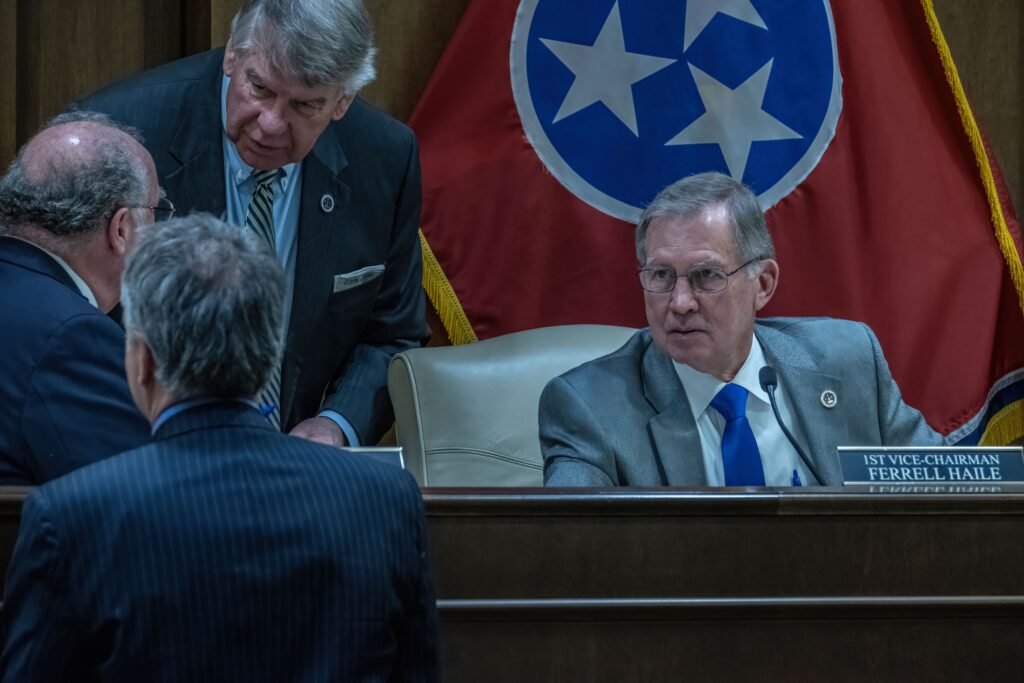Tennessee Lawmakers Defend Felony Punishments for School Threats
Senator Ferrell Hale, a Republican from Gallatin, believes changes to existing laws regarding threats of violence in schools aren’t necessary. However, some critics argue that the law has been misapplied in various instances.
Democratic lawmakers, including Beau Mitchell and Senator Hale, have stood by their past decisions to impose stricter penalties for threats of school violence. This legislation classifies such threats as felonies instead of misdemeanors.
Mitchell, who is campaigning for the Tennessee Senate District 7, recalled a prior push for harsher penalties two years back when a threat at Nashville High School prompted police action. He emphasized that, given the traumatic events affecting children, it’s crucial to take these threats seriously, regardless of their authenticity.
“It’s largely up to the discretion of the prosecutor,” Mitchell noted. He believes that legal professionals can discern serious threats from jokes, letting them decide on appropriate charges.
Despite recent controversies, Mitchell asserts that the law was essential in response to high-profile school shootings that claimed the lives of several individuals, including children.
Senator Hale, who has pushed for tighter restrictions following tragic incidents, mentioned that procedures should start with teachers and work through school administrators before charges are laid against students. He expressed concern about whether law enforcement is sometimes overstepping by charging young people for harmless jokes made on social media.
“It should begin at the teacher’s discretion and escalate appropriately,” Hale said. “While I think our legislation is solid, there have been instances where students faced arrest for sharing what were deemed threats on social media.”
For example, Propublica highlighted a situation where a cheerleader’s TikTok video led to charges of disorderly conduct for a group of students. Critics argue that such responses can be excessive and might push students into the juvenile justice system when education on appropriate behavior might be more effective.
Another case involved a 16-year-old who shared an AI-generated video that was misconstrued as a threat, despite the belief it was meant as a joke. Similarly, a Nashville 12-year-old was arrested after attempting to warn his peers about threatening messages he received, although he believed he was acting heroically.
Tennessee enacted these laws four years ago, labeling threats of mass violence as misdemeanors with zero tolerance in public schools, resulting in mandatory expulsions.
Following the Covenant School shooting, efforts to tighten the law were made, although substantial changes have yet to materialize. In 2023, Hale used the 2020 Christmas bombing in Nashville to underscore the need for stricter regulations, yet he expressed hope that charges wouldn’t be laid against children for minor infractions.
Advocates for students with disabilities oppose the legislation, asserting that it could lead to harsh punishments for students who may not comprehend the gravity of their actions.
Democrat Gloria Johnson, a former special education teacher, criticized the law for lacking protections for those with special needs, arguing it could lead to severe unintended consequences for vulnerable students.
Efforts by Monroe County Republican Rep. Mark Cochran to introduce new felony charges related to threats against groups of individuals were spurred by growing concerns encompassing everything from schools to government buildings. Discussions about these measures continue, particularly regarding the intent behind such threats.
Recent legislation, supported by Governor Bill Lee, aims to criminalize not only threats of violence but also actions like doxxing, enhancing penalties to address serious threats against large groups of people in various public settings.







